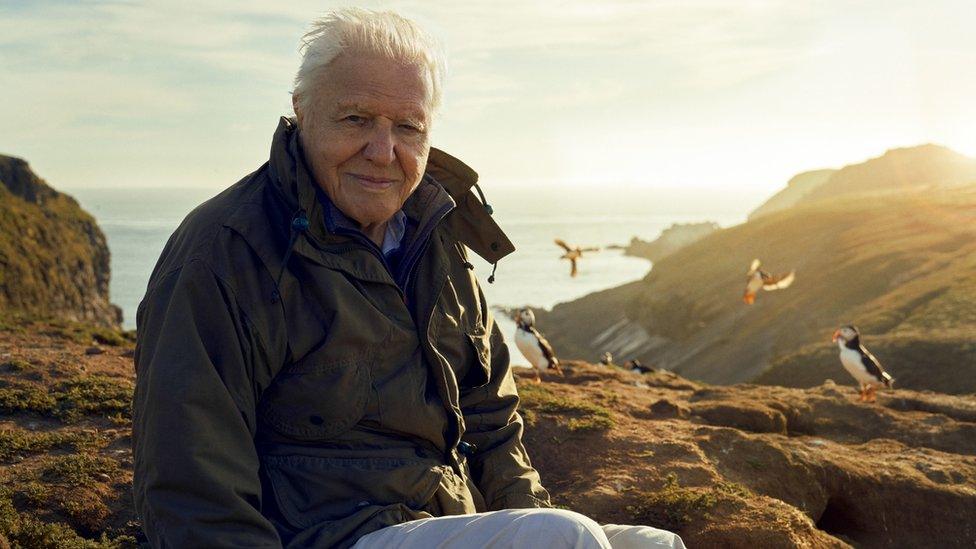Dorset cliff cameras to probe mystery of missing puffins
- Published
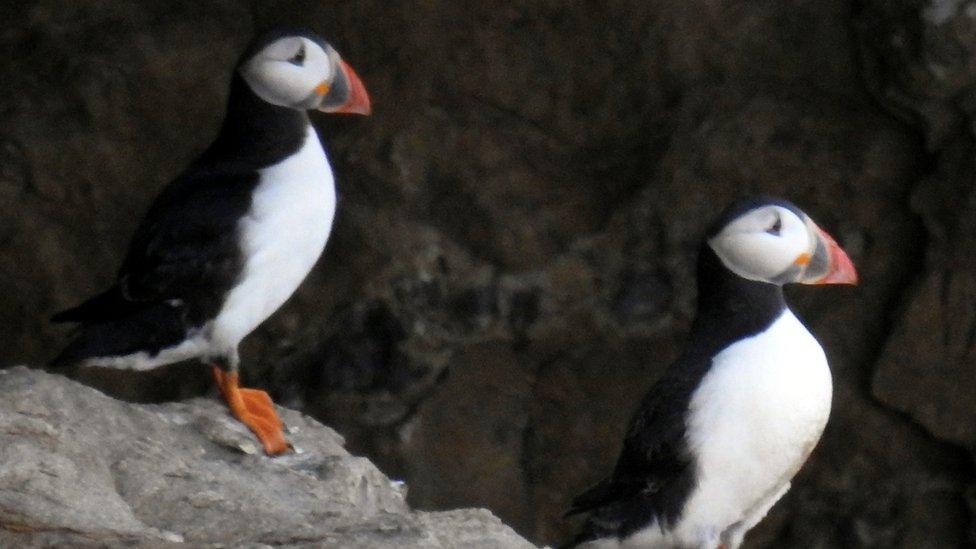
The small colony, on cliffs at Dancing Ledge near Swanage in Dorset, comprises three nesting pairs
Experts are trying to find out why the last known nesting puffins on the south coast of England apparently failed to raise chicks to maturity last year.
The small colony, on cliffs at Dancing Ledge near Swanage in Dorset, comprises three nesting pairs.
The adult birds stopped bringing fish to their young after three weeks in 2023, suggesting that the pufflings had died, the National Trust said.
Scientists have installed cameras on the cliffs to try to solve the mystery.
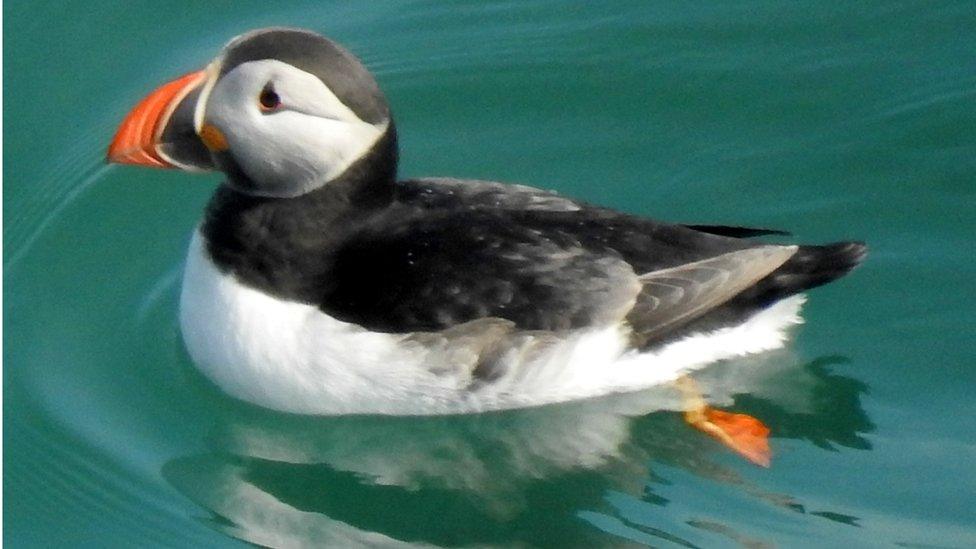
The National Trust said puffins were "abundant" in the 1900s along the Dorset coastline
Marine ornithologist, Dr Richard Caldow, conducted research on the three nesting pairs in summer 2023.
He said: "Every day, the puffins seemed to be taking plenty of fish to the nests which indicates that the food source wasn't a problem. But after three weeks, they stopped their deliveries.
"The pufflings need to be fed for six weeks before they leave the nest, so there must have been a reason why the adults stopped taking them fish - such as the chicks having been predated by rats, gulls or crows."
A statement from the National Trust explained puffins were "abundant" in the 1900s along the Dorset coastline, but they have declined in the last century.
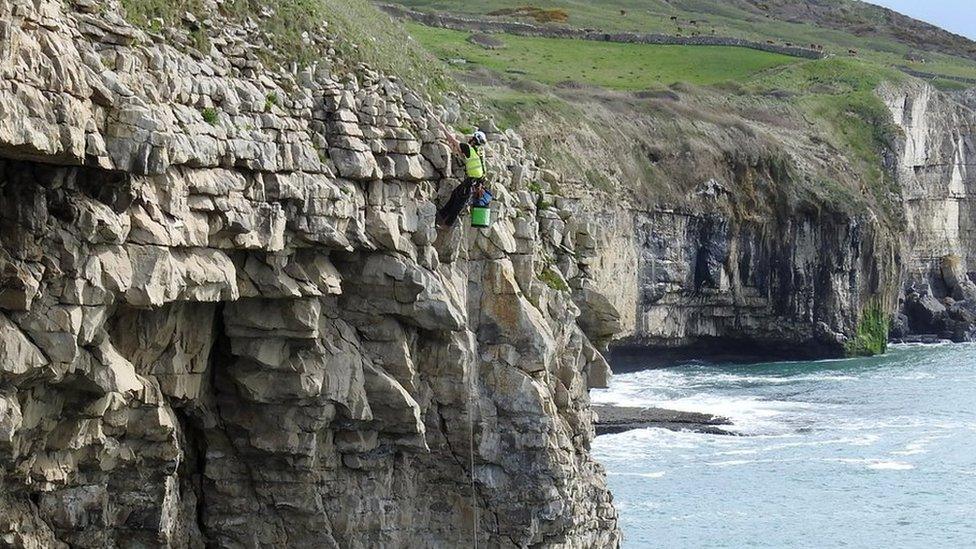
Dorset Wildlife Trust, NatureSpy and SSHConservation have helped by providing camera kit and installation services
Dorset Wildlife Trust is supporting the camera initiative by sourcing kit and equipment.
Ben Cooke, from the National Trust in Purbeck, added: "These cameras will be key to helping us plan for the future of these special, rare seabirds. They'll help collect really important evidence of what's happening with the puffin colony, then we can assess if there is anything we can do to help."
He said Dancing Ledge is a popular spot for members of the public to explore and urged people to take their rubbish home, explaining: "If rats are identified as the main problem for the puffins, then discarded food will exacerbate the issue."

Follow BBC South on Facebook, external, X, external, or Instagram, external. Send your story ideas to south.newsonline@bbc.co.uk or via WhatsApp on 0808 100 2240, external.
- Published1 April 2024
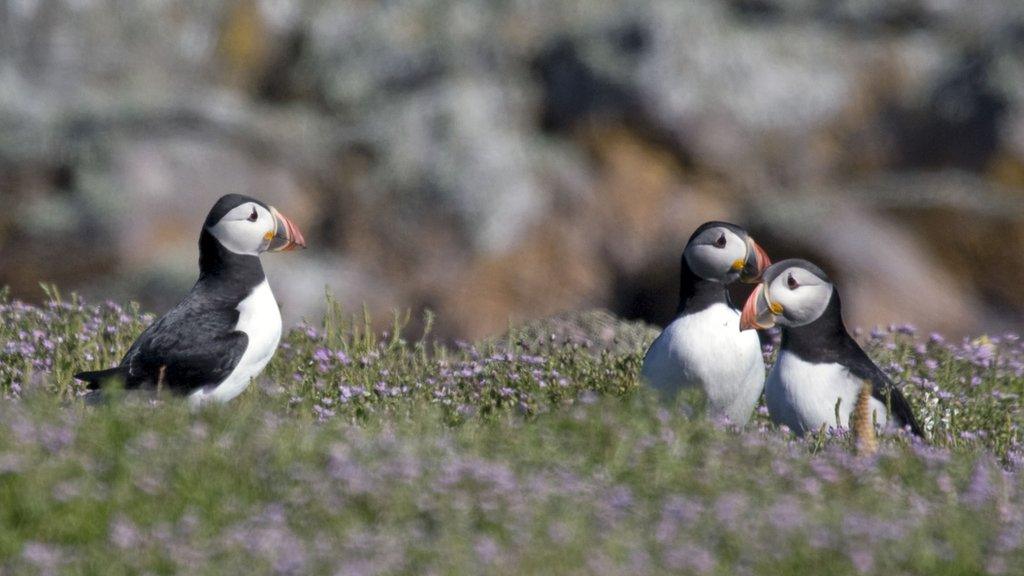
- Published30 March 2023
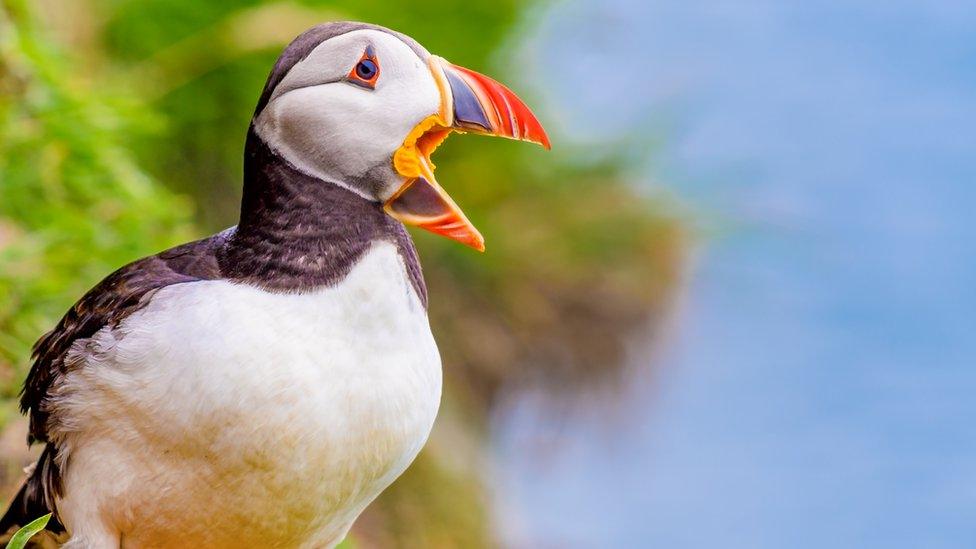
- Published13 March 2023
